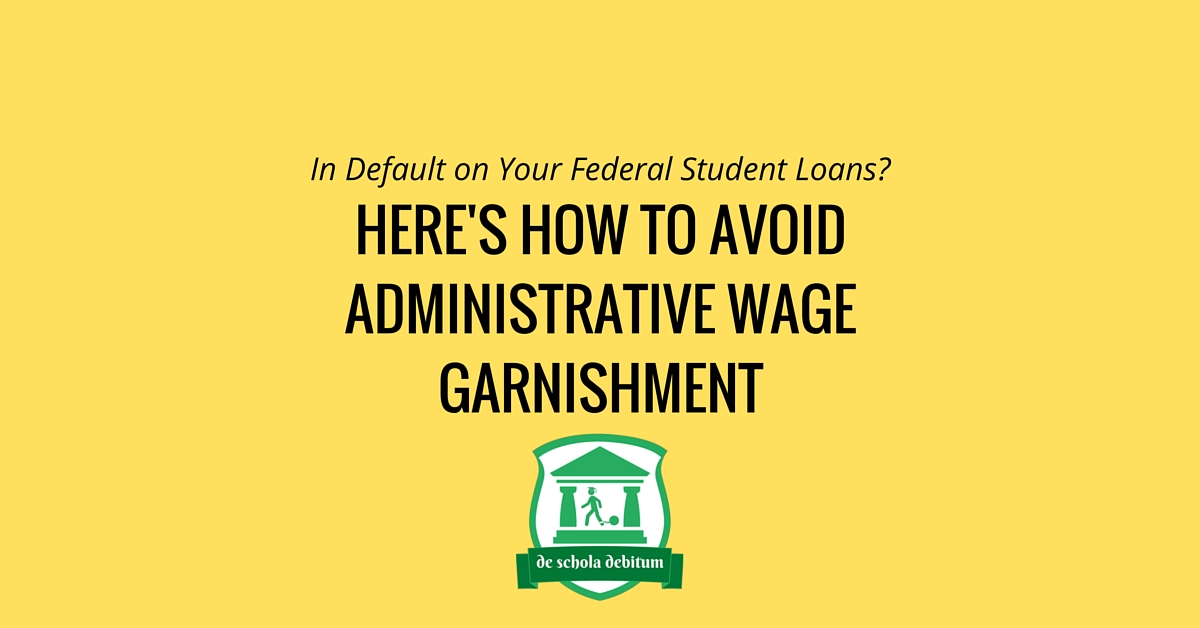7 million federal student loans are in default. One of the ways the government can collect is through an administrative wage garnishment.
Under federal regulations, the government can take up to 15% of your disposable pay if you’re in default. And they don’t need to file a lawsuit and obtain a judgment against you; all the collector needs to do is notify you 30 days in advance of beginning the wage garnishment
This doesn’t mean you don’t have a number of rights. In fact, you can avoid the administrative wage garnishment by paying the balance in full or by entering into a written repayment agreement with the lender to establish an agreed-upon schedule for the repayment of the debt.
You also have the right to request a hearing and object to the garnishment. That’s what we’re talking about today on the show – how to request a hearing, grounds for objections to the garnishment, and ways to minimize the damage to your financial situation.
Once you’ve listened to the show, you’ll know exactly what to do – and what to avoid – when you get a notice of a pending administrative wage garnishment.
Get My Best Student Loan Advice (FREE)
Enter your email address and I'll send you new episodes and other updates by email. 100% free, and you can cancel at any time (but you won't want to).

